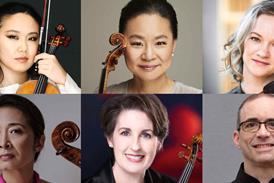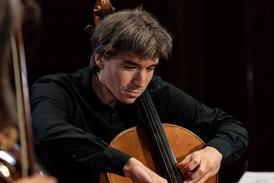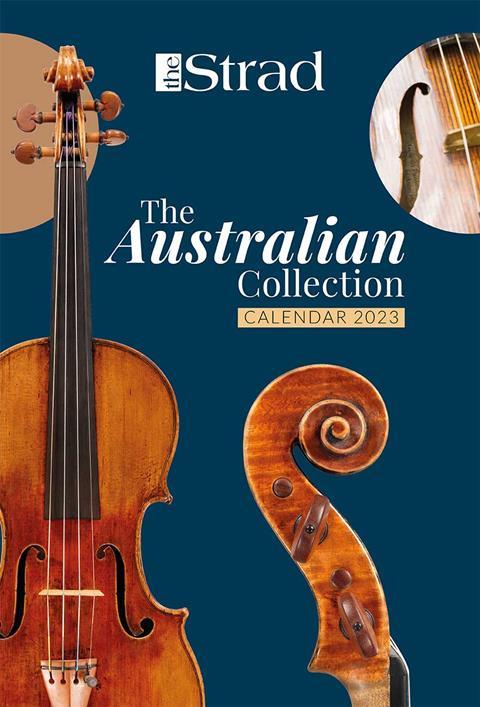Violinist Jenny Clift struggled with performance anxiety until she discovered an unusual therapeutic technique. Now she believes that anyone can tame, or even overcome, stage fright

Discover more Featured Stories like this in The Strad Playing Hub
Read more premium content for subscribers here
Picture a small, scared eight-year-old waiting their turn for their Grade 2 piano exam. The child is shaking with fear, white-faced, terrified at the thought of messing up. Their teacher tries to help by offering words of encouragement, stating gently but firmly that nerves are necessary and show that you care.
But what if this commonly held belief is inaccurate? What if it is merely a coping mechanism for dealing with the fact that up to now we’ve lacked effective ways of managing the jitters and clumsy fingers that often accompany performances? What if it were possible to play without fear, remaining relaxed and cheerful, and still be completely focused and performance-ready? In fact, what if such a state enabled you to connect with the music, your technical abilities and your unique musical voice, leading to an even higher level of performance?
We are all aware of the detrimental, even devastating, effects that anxiety and stage fright can have on our playing. In my own career, I recall numerous, embarrassingly traumatic instances of memory slips, playing in rests, wrong notes, breakdowns and painful, out-of-tune octaves. These experiences often stay with us for years and often lead to feelings of shame, anxiety and fear. This is particularly true for classical musicians who frequently perform under immense pressure while battling the self-doubt that arises from the internal voice telling us that we are not good enough.
Getting into a renowned music college marked the beginning of the end for my dreams as a youthful violinist. Suddenly, I was a small fish in a big pond, and my previous confidence, as the leader of my school orchestra and star pupil of my beloved teacher, was shattered. As a result, I struggled and ultimately just scraped (literally!) through my performance diploma. When I informed my violin professor that I was quitting, he muttered, ‘About time too.’ I fled the UK and spent the next decade teaching English in Spain, with my instrument hidden silently in a cupboard. However, the desire to make music never left, and finally, encouraged by a more sympathetic teacher, I began playing again.
We are all aware of the effects that anxiety can have on our playing
While freelancing and teaching the violin, I also attempted to secure a permanent position, which naturally led to auditions. The very thought of auditioning can cause panic and trepidation even in the most self-assured musician. Despite employing coping mechanisms such as deep breathing, beta blockers, hatha yoga and self-reasoning, I found that the internal voice and feelings of inadequacy persisted, preventing me from achieving my goals.
In 2011, I discovered a solution that would change my life. While browsing YouTube, I stumbled upon a seemingly bizarre practice, Emotional Freedom Techniques (EFT). Since the 1990s, there has been a rise in modalities that combine Western talk therapy with Eastern energy techniques, with EFT being one of them. It involves stimulating acupressure points by tapping on them while discussing the corresponding emotions and challenges being faced. This reduces the stress hormone cortisol, rewires the brain and calms the fight or flight response, allowing the mind–body and nervous system to relax. Working with an EFT coach, I achieved remarkable transformations in my career. And right before the pandemic, I was employed for two seasons in a musical in Madrid while training to become an EFT practitioner. I am now honoured to work with other musicians and artists and witness their incredible, joyful, fear-free achievements.
Therefore, I am delighted to announce that nerves are not necessary! The use of techniques such as EFT can be life-changing for musicians and performers, enabling them to overcome internal barriers, achieve their goals and perform to their highest potential.
Read: 10 points to help you handle performance anxiety
Read: Learning about your performance anxiety: Adam Hockman
Discover more Featured Stories like this in The Strad Playing Hub
Read more premium content for subscribers here
The number one source for playing and teaching books, guides, CDs, calendars and back issues of the magazine.
In The Best of Technique you’ll discover the top playing tips of the world’s leading string players and teachers. It’s packed full of exercises for students, plus examples from the standard repertoire to show you how to integrate the technique into your playing.
The Strad’s Masterclass series brings together the finest string players with some of the greatest string works ever written. Always one of our most popular sections, Masterclass has been an invaluable aid to aspiring soloists, chamber musicians and string teachers since the 1990s.
This year’s calendar celebrates the top instruments played by members of the Australian Chamber Orchestra, Melbourne Symphony, Australian String Quartet and some of the country’s greatest soloists.

























































No comments yet